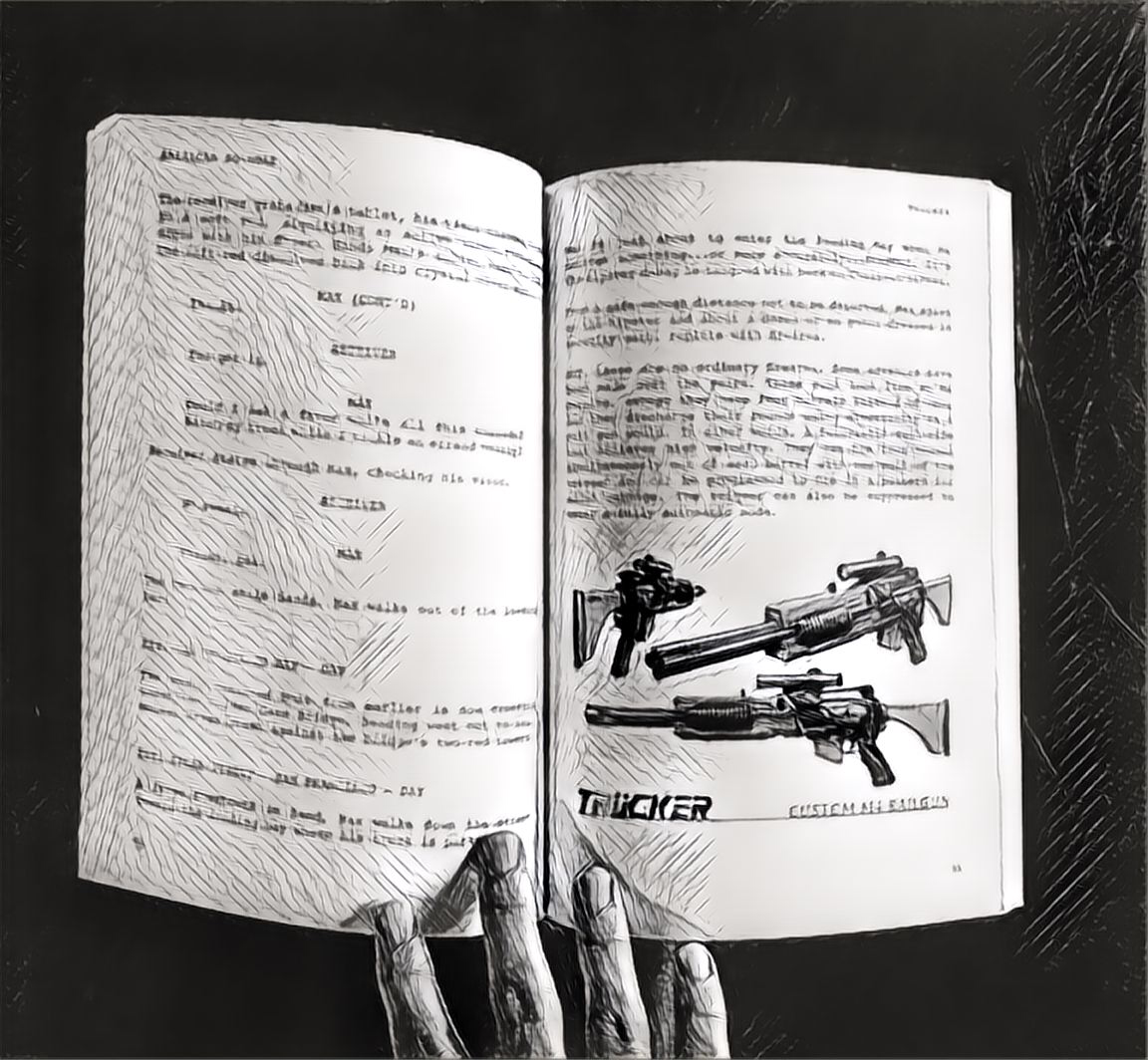What It Takes To Write A Movie

I encounter many people who have a hot idea for a movie. Many of those same people rarely follow through with buckling down, transforming that idea into a script ready for production. And for good reason, it’s a difficult and soul-testing process.
I’ve worked with and observed the best writers in Hollywood. Put their different politics aside for a moment. These people are driven.
For me, it does start with an idea. But not just any idea. It’s an idea that hits you and won’t leave you alone. It festers. It germinates. It vanishes, then reappears better than before. It haunts and hounds you. It guilts and inspires you. That’s the sort of idea you must start with.
Ideas are cheap though, even the kind of weighty ideas I just described.
Next, is our dear friend, commitment. Commitment to see it all the way through. Finishers are in short supply, whereas starters are abundant.
Everyone’s process is different, so I am in no way saying my way is THE way.
With an idea in hand and a commitment to myself to complete it, I then move to writing short bios about the main characters. I write blurbs about the world and plot too.
Next, I bake all that stuff into a rough outline/beat sheet. And, I rapidly go through each main beat in the movie from beginning to end.
From there, I fire up Final Draft and, with the outline on a separate screen, I start to write the first draft of the actual movie itself. For my beloved sci-fi action thriller Trucker (available on Amazon now), this meant a firm commitment to write X number of pages every…single…day until I was done. No exceptions. This was among the hardest parts of the entire process. It helped to know I didn’t have to write the entire thing in a short period of time, just consistently chipping away at it. That’s the key. The first draft took me 30 days. No breaks.
After that, it’s time to read it and re-read it. Question it. Shoot holes in it. Polish. Polish. Polish.
Once that’s done, a small circle of friends and colleagues get a PDF in their inbox with a request to read for feedback and amusingly paranoid warnings of keeping it confidential, of course.
Getting those notes back can suck, but it’s all in service of a better, tighter movie. Addressing these notes challenges the premise, characters, everything you worked hard to craft. I’d rank making changes up there with finishing the first draft, as far as difficulty is concerned. This process should continue for many drafts. Could be as many as 8–10 versions and could span years.
Why the long time? Friends and colleagues have lives too and can’t always allocate time to the process of reading on your time horizon. Furthermore, it’s healthy to determine when the script is at a point where you may be hitting a wall or things could be great, yet you just need some distance. Putting the script in a drawer for months at a time can help refresh your mind the next time you read it. I did this too. Multiple times.
Still with me?
See? I told you this whole process separates the serious from the armchair screenwriters out there, who are overflowing with ideas they can’t show you because they don’t exist in any meaningful form.
Let’s say the script is all done and it’s time to shop it.
As Michael Wright, former co-head of TNT, wrote (and I will poorly paraphrase) in the LA Times: Everyone has an idea. Not everyone is able to execute the idea. Therefore, execution is more important.
What Wright meant by that is this: someone may have a billion dollar film/tv franchise in them, but without the ability to execute, it will remain unproduced inside their heads. Average ideas with solid execution win the day. Crap ideas with solid execution win. In other words, even if you are determined, hard working and have a sensational script in-hand, not being able to navigate the schmoozy waters of Hollywood will still result in a dead end.
One also needs to be competent, organized and somewhat easy to work with. Producers, if they opt to make your script, will be spending lots of time with you, and they try to avoid jerks wherever they can. Exceptions are made for bankable talent who’ve earned the right to be a jerk.
In my case, I’m doing something different. I know the political messaging of my sci-fi action thriller instantly qualifies me as a jerk (in their eyes) and is at odds with the Cultural Marxist narrative. I wrote Trucker because I had to get its important message off my chest and I wanted to serve a forgotten/ignored/hated audience out there. Namely, you. Hence, my decision to put it on Amazon as a way to gauge the size of the audience. You can read the foreword to the book here.
I’ve also taken the unorthodox approach of integrating artwork for Trucker inside the script itself. Not just as an appendix, but inside as the plot unfolds. Something different (and more complicated than it sounds…believe me).
Now you have a brief sense of what goes into writing these scripts.
Even if you hate reading, buying Trucker is the same as voting for change in Hollywood. Buy it so I can show the sales data to the people I know who may just cave to the profit motive and put their politics aside. Buy it to see the sort of projects that are being suppressed by the Left.
Originally published February 7, 2018 at americansowoke.com.
Congratulations @americansowoke! You received a personal award!
Click here to view your Board
Congratulations @americansowoke! You received a personal award!
You can view your badges on your Steem Board and compare to others on the Steem Ranking
Vote for @Steemitboard as a witness to get one more award and increased upvotes!